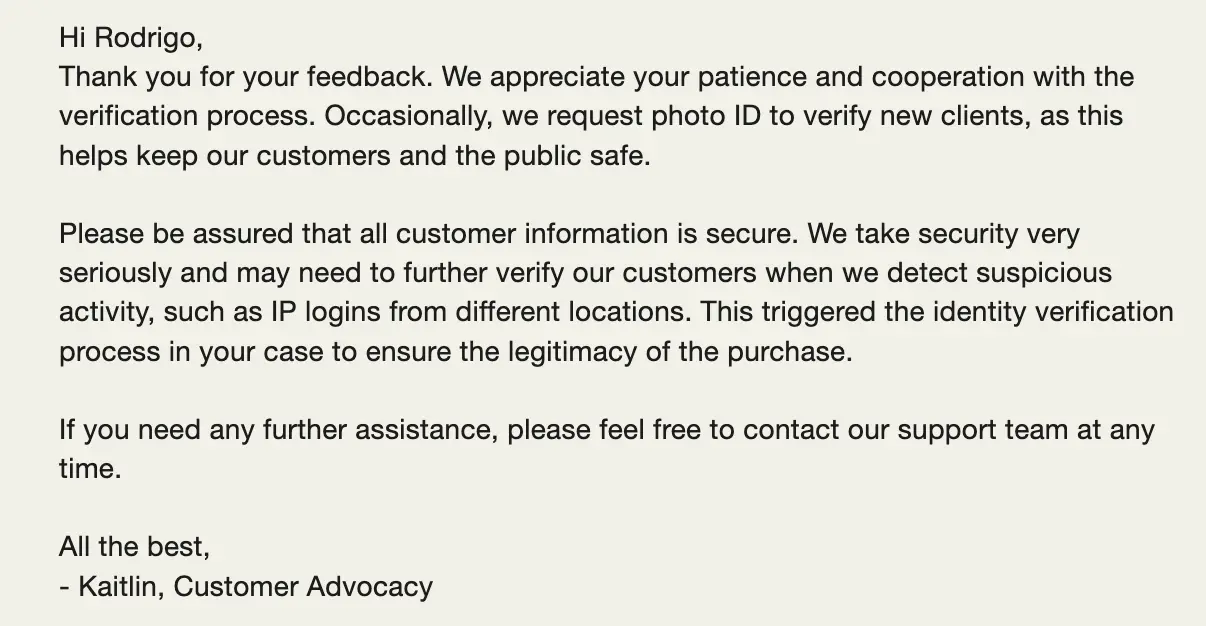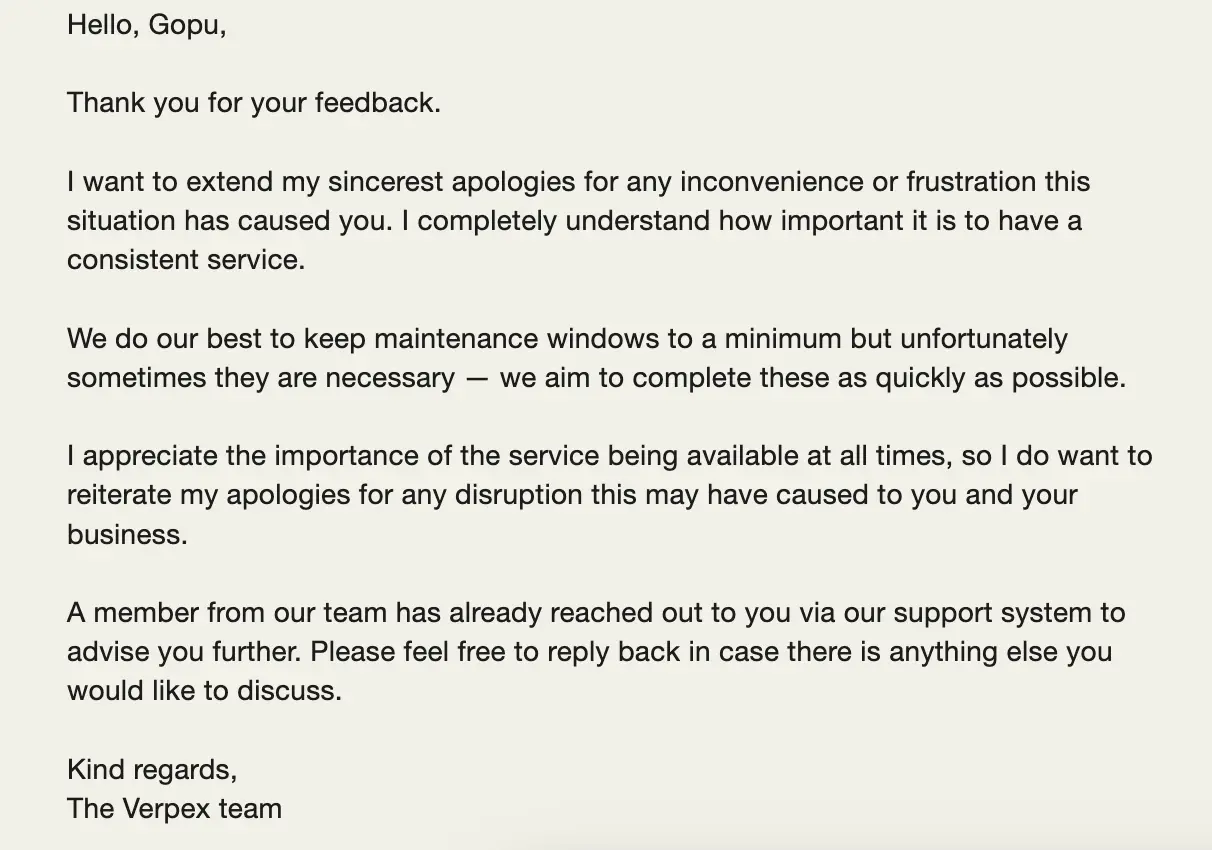At some point in your business journey, you must prepare for negative feedback. It’s happened to me, it’s happened to Apple, and regardless of how good your seller rehosting is, it will inevitably happen to you. If you’ve never received negative feedback before, it can seem like the end of the world—that now, the world will find out you’re not all you’re cracked up to be.
But before adopting doomsday thinking, let’s take a step back.
Even if you get negative feedback, you can take several steps to rectify the issue. Through proactivity, you can turn this experience into a positive one and gain trust with your other customers.
How you deal with negative feedback will depend on whether it’s direct or via an online/social media review. Today, I’ll show you how to tackle both of them.
Dealing With Direct Negative Feedback
Listen to the Customer With an Open Mind
When you first hear negative feedback from a customer, you’ll likely have a visceral response. It can be very easy to think the other person doesn’t know what they’re talking about in these situations. After all, you’re the hosting reseller business owner… right?
Wrong.
One of the most important (but admittedly difficult) business lessons I had to learn was not taking rejections and bad feedback so seriously. The customer might have a good point if you listen to them, and you may also get valuable insights on how to run your business more effectively.
You can’t listen with an open mind if you’re running high on emotions, so it might be a good idea to process things a bit before implementing any feedback. You should also consider hiring a customer support team (one of many essential reseller hires, as I’ll discuss in more detail later.
Ask for Specifics That Can Help With the Request

I used to work in hospitality, and I can say from personal experience that diffusing a situation is often the best customer service strategy. It’s a crucial first step toward reconciliation; even if you feel like your customer is an enemy at that moment, do everything you can to help.
The feedback might relate to an ongoing issue, and if so, you should ask the customer for specifics that can help with their request. For example, you might need them to provide a customer reference number (CRN) to examine issues impacting their specific plan.
You can also ask them to provide further details, such as the specifics of their issue. Doing this will make it much easier to give more accurate assistance.
Provide Transparent Updates Throughout
Many businesses, including hosting resellers, make the mistake of forgetting about their customer after they sign up. Having dealt with some really bad customer support teams, this can also occur when you’ve asked for help.
Some issues might take longer than others to resolve, especially if they’re highly technical. During this time, you must keep the customer who left negative feedback in the loop. You don’t need to go over the top, but a simple daily acknowledgment will go a long way.
Negative feedback is an opportunity to make someone change their mind, and they might even adjust the contents of their review. Trust will play a significant role in determining whether the individual starts looking for another hosting reseller, so take it seriously.
Ask Your Customer for Specific Suggestions on What They Would Improve
Customers who’ve had a particularly bad experience (or are just in a bad mood) may not be willing to cooperate after leaving negative emails or messages. But at its heart, most people who complain do so because they want a solution. What’s even better is if they know exactly how they would fix a problem.
Whether the issue has something to do with them having two domains pointing to the same website but one isn’t working or something else, customers often know your products and services best. I’ve always found it helpful when companies have asked me to leave suggestions, and doing the same with your customers can help ensure that you don’t encounter the same problems in six months’ time.
You will need to do this in a non-confrontational way. Asking for feedback once a customer request has been completed is one way; you can also specifically ask them something like “is there any specific product or service you’d improve, and if so, what would you add?”.
Hire a Customer Support Team to Deal With These Issues
As the owner of your business, you will naturally be more emotionally attached than others. One reason why I said you should hire a customer support team is for this exact reason. A high-quality support team will not only have the required technical expertise; because they’re less emotionally invested, they can make more logical decisions.
Another reason to hire a customer support team is that you probably started a rehosting business to focus on other elements. You should 100% listen to your customers and consider implementing feedback, but you also need time for proactivity to develop your products and services. Hiring a customer support team will free up valuable time to focus on moving the needle forward.
Show What You’ve Done to Rectify the Problem
Whether you manage to win back a customer or not, showing that you at least take negative reviews seriously will show that you care about the quality of your service. Once you’ve solved the issue, you should say what you did to fix it (and how you plan to minimize the chances of it happening again).
You don’t need to go into too much detail here; a simple email outlining the steps you’ve taken will suffice. Alternatively, you can reach out to them if they contacted you via another channel (e.g., Instagram). Doing this will go a long way in ensuring successful business management.
Dealing With Negative Feedback Online
Sometimes, customers will leave a bad review rather than contact you directly. Even a single one-star review can significantly drag your averages down and influence other people’s perceptions of you, and as a result, you should take these seriously.
Many of the above tips still apply, but you should also consider implementing what I outline below.
Respond to Your Reviews

Disgruntled customers can be won over after leaving a negative review, and even if they don’t give you their business again, you may want to ensure that readers get both sides of the story. Responding to negative and fake reviews is an art form; if it’s an ongoing issue, you should ask the reviewer for a way to contact them. In these cases, implementing everything you learned when dealing with direct negative feedback is wise.
When responding to reviews, personalization is also a good idea—as is apologizing for the user’s experience. Showing empathy will go a long way and highlight your professionalism, and others will take note before they decide whether they want to sign up for your services.
If you feel the response is unjust, you can also explain your side; the same is true if you’re responding to a fake review. Explain things from your perspective and outline what you did to fix the problem. However, you need to be very careful here to avoid being confrontational.
Hold Your Hands Up if You Did Something Wrong
Not everything will go right in any business, and reseller hosting is no different. When you mess up, the best thing you can do is take accountability while simultaneously implementing the appropriate steps to ensure it doesn’t happen again.
When responding to a review that results from this, send your deepest apologies and reiterate that you pride yourself on the highest quality customer service. It’s also a good idea to explain why this happened in the first place and how you’ve changed your preventative measures.
You can also reconcile with the customer by offering them a gift to apologize. For example, you could consider giving them a discount or a free upgrade. Look at the customer’s previous history to see if anything might specifically appeal to them.
Ask the Customer to Edit the Review if You’ve Solved the Problem
I’ve sometimes left negative reviews on websites like Trustpilot because I wasn’t happy with a company’s service or customer support. However, since mistakes happen, I also think it’s worth giving some businesses the opportunity to correct their wrongs.
In the past, I have edited my review if they’ve solved the problem effectively. Similarly, I’m also happy to adjust my review if I have a positive experience with their customer support team.
Most customers don’t want to tarnish your reputation deliberately; they just want the value you promised them. If you’ve solved the customer’s problem effectively, you can ask them if they’re willing to adjust the review they left; you should do this privately.
Conclusion
Dealing with negative feedback as a hosting reseller is inevitable, and you should prepare accordingly. Having a good customer support team is crucial, and I also recommend compiling a strategy for how you’ll try to diffuse the situation. Understanding the different scenarios that could prompt someone to leave a negative review, and proactively looking to solve the issue, will go a long way toward reputation upkeep and customer satisfaction.
Frequently Asked Questions
How do I become a hosting reseller?
To become a hosting reseller, all you need to do is select a host, choose a hosting package, create your own hosting packages, and get your hosting business online.
How do I choose the right reseller hosting provider?
When choosing a reseller hosting provider, you should consider factors such as scalability, customization options, pricing, technical support, and reputation.
Do I need technical knowledge to use reseller hosting?
While it is helpful to have some technical knowledge when using reseller hosting, many hosting providers offer support and resources to help resellers manage their clients' hosting accounts.

Danny is a seasoned freelance copywriter with 10+ years of managing his own websites in WordPress and other content management systems. He's an expert in eCommerce and sells his own photography prints, in addition to knowing about hosting domains having used several providers. Danny's strong writing expertise is evident in his bylines across several major tech publications, including Lifewire, MUO, and Make Tech Easier.
View all posts by Danny Maiorca




















